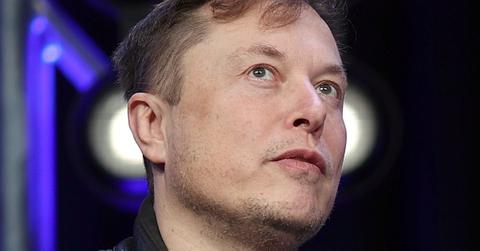Elon Musk Had a Huge Tesla Stock Sell-Off in 2021 And Now He May Do it Again to Cover Taxes
Does Elon Musk pay taxes? The Tesla CEO has had a “true tax rate” far lower than that impacting average Americans, a recent report concluded.
April 15 2022, Updated 12:21 p.m. ET

Tesla CEO and newly-minted TIME Person of the Year Elon Musk does have to pay taxes—sometimes, at least. As ProPublica reported in June, Elon Musk's federal-income-tax payments amounted to $68,000 in 2015, $65,000 in 2017… and $0 in 2018.
ProPublica also reported that Musk grew his wealth by $13.9 billion from 2014 to 2018 but reported $1.52 billion in income and paid $455 million in taxes, which made his “true tax rate” 3.27 percent, while the median American household’s federal tax rate is 14 percent.
Musk responded to claims of tax avoidance by vowing to sell 10 percent of his Tesla stock.
ProPublica also explained how the ultra-rich can access billions without selling stock or taking a salary. They take out loans and use shares of their companies as collateral. As the organization noted, Tesla reported in 2020 that Musk had put up around 92 million shares of the company—currently worth over $88 billion—as collateral for personal loans.

In response to accusations that unrealized gains are a means of tax avoidance, Musk asked Twitter users last November whether he should sell 10 percent of his Tesla stock. He added that he would “abide by the results of this poll, whichever way it goes.” By the end of the poll, 58 percent of respondents said that they supported him selling the shares.
The SpaceX founder did end up following through on his promise. As MarketWatch noted, on Dec. 9, Musk sold about 11.03 million Tesla shares (which was worth around $10.6 billion at the time) since Nov. 8. It was about 6 million shares shy of 10 percent of his Tesla stake at the time of his Twitter poll.
Elon Musk is selling stock ahead of stock option expirations and possible tax increases.
Musk might not have been totally transparent in his Twitter poll, though. CNBC reported in November that the businessman would have probably sold Tesla stock no matter what the results followers decided, since he would have had a massive tax bill to settle later that year. While it was expected that he would have around a $15 billion tax bill, Musk ended up with an approximate tax liability of $11 billion for the year of 2021.
Tesla awarded Musk stock options—22.8 million shares at a strike price of $6.24 per share—as part of his compensation plan in 2012. When those options expire in August 2022, Musk will be able to exercise them, but then he’ll have to pay income tax on that gain. CNBC calculated that his combined state and federal tax rate on the options would be 54.1 percent. (With Tesla’s stock price at the time of CNBC’s report, that bill would be more than $15 billion.)
Lawmakers have been considering tax increases. One proposal would impose a 5-percent tax on adjusted gross income above $10 million and another 3-percent tax on income over $25 million, including capital gains from stock sales, as The Wall Street Journal reports. Daniel Taylor, an accounting professor at the University of Pennsylvania’s Wharton School, told the newspaper that wealthy taxpayers have “a powerful incentive to sell this year” before that proposed tax hike goes into effect.
Would Musk sell Tesla stock again to buy Twitter?
The SpaceX CEO made a $43 billion offer to buy Twitter this week in cash, but there's a possibility that he may have to utilize his Tesla shares to acquire those funds.
Musk could either take out another loan and his shares as collateral or sell his stock straight up to obtain the funds, but taking out a loan would likely result in him having to pay fewer taxes. However, if Musk decides to sell his Twitter shares in the near future, which he has threatened to do if he cannot buy the social media platform, he would face a massive short-term capital gains tax bill.
